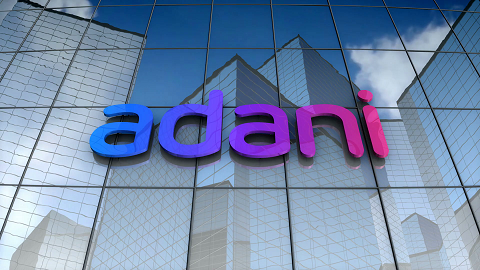
Why investors needn't panic over Adani group firms' share fall
Any big fall in the share price of a company may affect different investors in different ways based on the level of their exposure, but things are never as bad as media reports make them seem like

Recently, there was a huge fall in the value of Adani Group shares in the market following a report by the US-based Hindenburg Research. Any such big fall in the share price of a company may affect different investors in different ways based on the level of their exposure.
But most media reportage exaggerates such events and, knowingly or unknowingly, panic is created in the minds of uninformed investors. So, let us analyse how any such event may affect different stakeholders.
Opinion | Hindenburg disclosure on Adani Group: Clean-up notice to all Indian companies
A share’s market price has nothing to do with the existing funds of the company. For that matter, it cannot have any impact on the sales or profitability of the company. There is absolutely no change in the company balance sheet. As a remote possibility, it can have some impact when the company tries to issue shares in future.
Promoters’ holding
The notional value of promoter’s holding in the company will come down. But it is common for the value of their holdings to move in tandem with the market value of the share. Only when the promoters want to liquidate their holding, they must bother about a fall in price, and such an eventuality is rare.
Sometimes, the promoters pledge their shares to raise funds. When the market value goes down, they may have to provide additional funds to maintain margin requirements. If they cannot provide such margin money, the existing pledged shares may be sold and the promoters will be affected to that extent.
Other shareholders
The value of holding of other shareholders will also come down and, based on their purchase price, there may be lesser profit or higher loss. Wherever the shareholders have pledged their shares, they may have to meet additional margin money or may have to forgo a part of the holding. Individual shareholders may decide to hold or add or sell, depending on their risk-bearing capacity and expected return.
Financing banks
Banks financing any venture generally take adequate tangible security. Even if the loan is not fully backed by tangible security, they will ensure adequate cash flow and profitability to service the debt. Beating down the share value in the market cannot have any impact on the working model of companies.
Also read: ‘Fraud is fraud’, says Hindenburg after Adani’s ‘attack on India’ response
Because of that, the servicing of the loan may not be affected. However, if the share value is beaten down due to lacunae in corporate governance, the business of the entity may also be affected. A fall in the market value of a share does not make the loan a non-performing asset. Banks may not bother if the company works well and services the debt.
Mutual funds
When a mutual fund scheme has invested in the market, its net asset value (NAV) will move in tandem with the market price. Hence, when the share price is beaten down in the market, the NAV will suffer.
But there are guard rails that the Securities and Exchange Board of India (SEBI) has put in place to protect investors from the risks of over-exposure to a particular security, sector, or group when they buy a mutual fund.
Also read: LIC says it has exposure of Rs 36,474.78 crore to Adani Group
While the securities and sectors in which a fund invests in and the extent of exposure are the choices of the fund manager and driven by the scheme’s investment objective, some broad investment guidelines need to be followed to ensure a minimum level of diversification in the portfolio to manage the risks to the investor.
In the case of equity funds, a scheme’s portfolio cannot hold more than 10% in a particular stock. If the shares are unlisted, which are riskier because there is less monitoring from SEBI and the stock exchange, this limit is 5%. For debt schemes, too, there are exposure limits.
Insurance companies
Investments by insurance companies are well regulated by the IRDAI (Investment) Regulations, 2016. When the market value of investment goes down, the overall fund value of the insurance company will come down. However, compared to the huge funds deployed by insurance companies like the LIC, a fall in a particular company share or segment may not have much effect on the overall portfolio, as the portfolio is well diversified.
For example, now the LIC says its exposure in the Adani group amounts to 0.975% of the total assets under management at book value. Also, the credit rating of all of Adani’s debt securities are AA and above, and, hence, LIC’s investments comply with IRDAI norms. It is also revealed that LIC is sitting on 100% gains even after this meltdown, as its investment in Adani Group was ₹ 28,000 crore whereas the present market value is ₹56,000 crore.
Takeaway
Equity market investors always face the risk of erosion in value due to a fall in market price. That risk can be minimised only by proper asset allocation and proper diversification but cannot be eliminated. There is no other way to insulate one from market meltdown.
There need not be panic over market volatility. After all, risks and rewards are related.
(The writer is a retired banker. The views expressed here are his own.)


